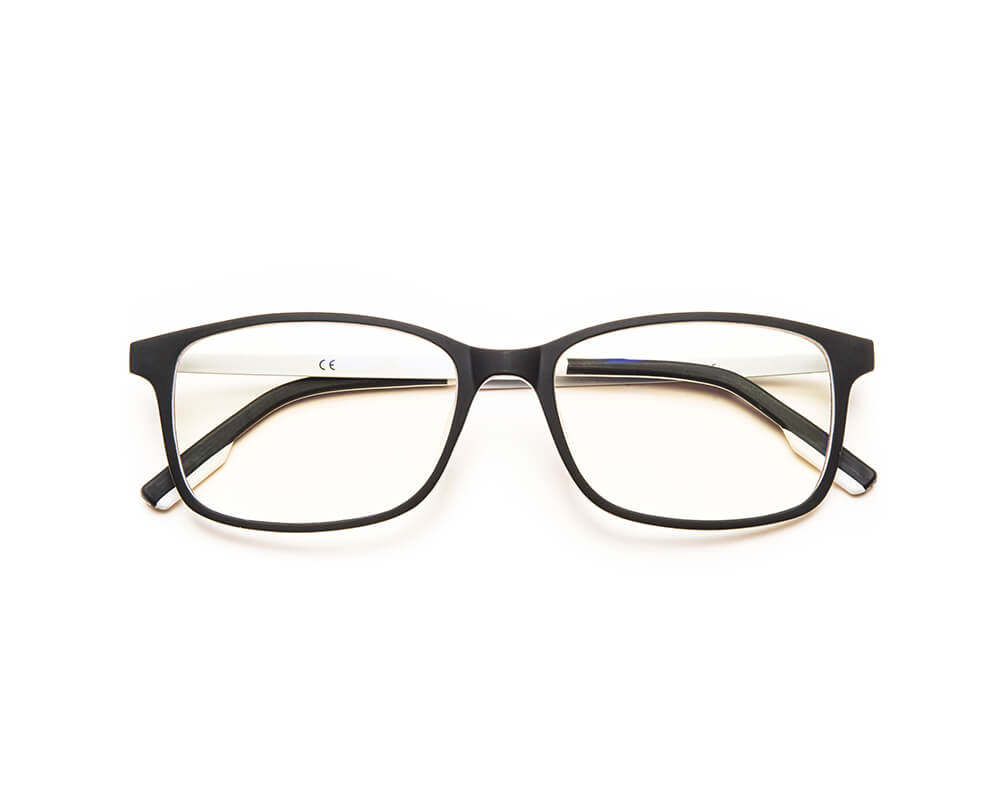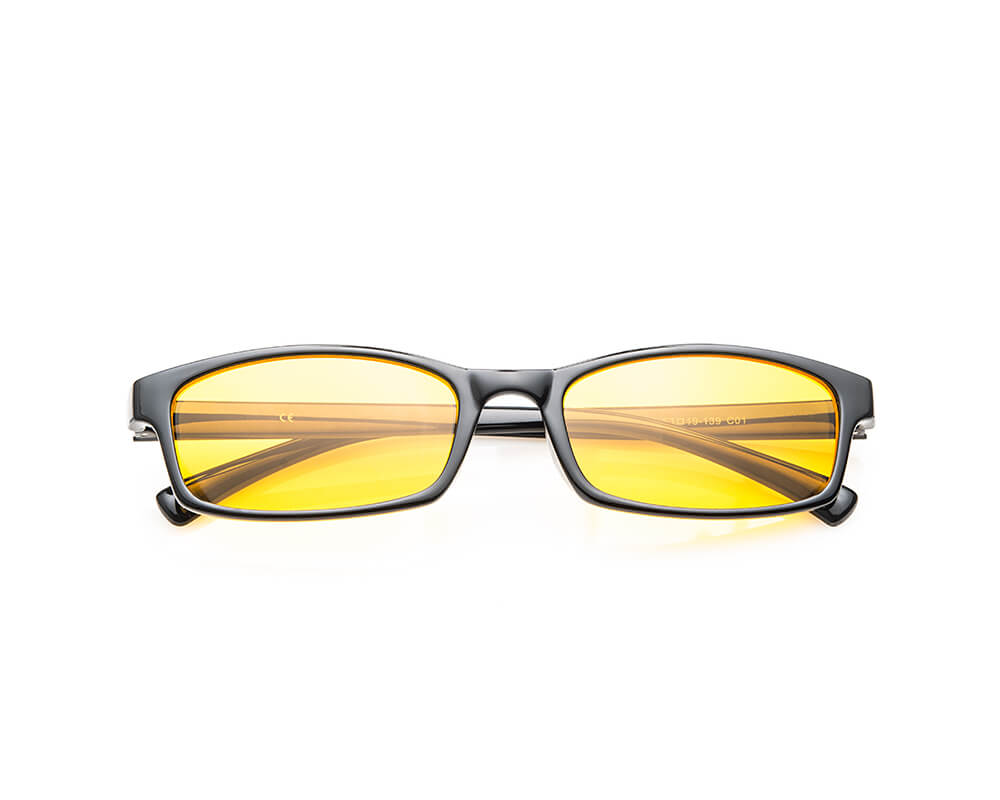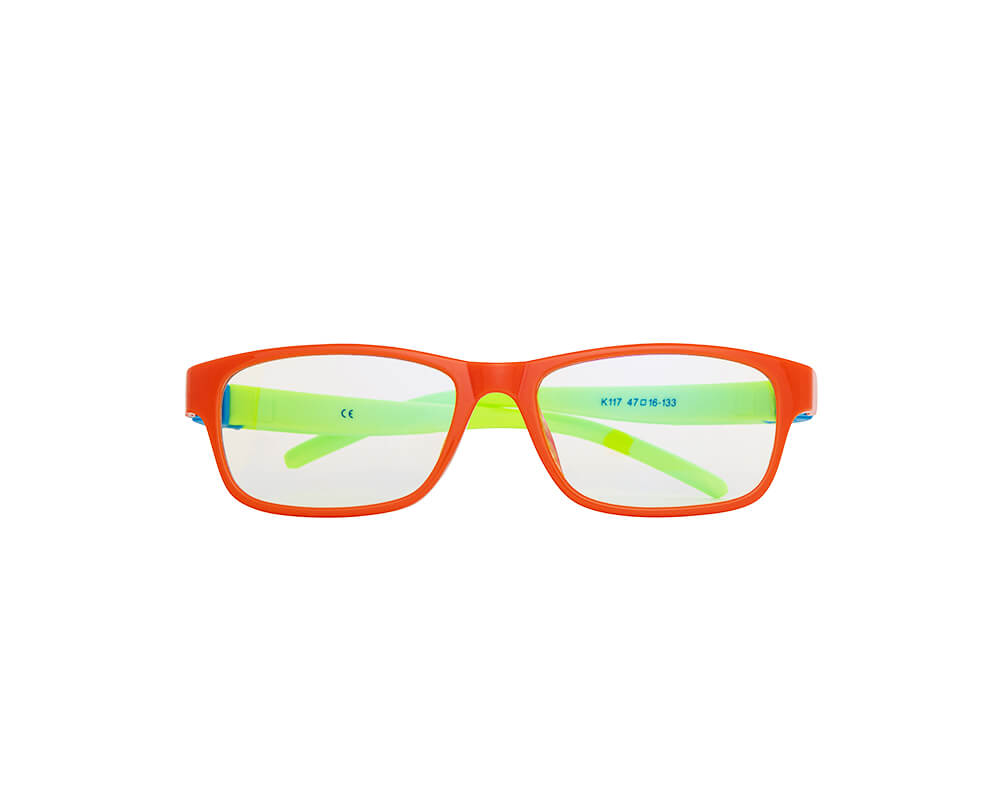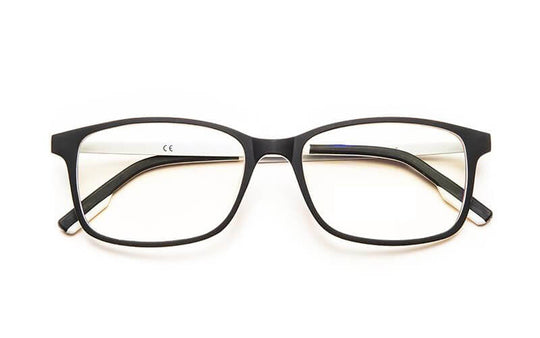Do You Need Computer Glasses?
Reducing eye strain and headaches with computer glasses
If your eyes feel irritated and dry after a long workday in front of the computer, a pair of computer glasses might help.
Every modern workplace is full of computers and digital devices. Case in point, you’re reading this article on a phone or a computer right now. At work or even at home most of us could not live without our devices but they also cause us a lot of stress as well. Who hasn’t dreamed of chucking their computer out in the street when you lose an important document or the screen freezes in the middle of an important video call? But that kind of stress isn’t what we’re talking about. Did you know devices can cause stress to our eyes as well?
Computer Vision Syndrome
If we notice that our eyes become strained and irritated during the day, it can be from something called computer vision syndrome. It is a temporary vision condition caused by staring at a computer screen for long periods of time without proper glasses for computer use. Common symptoms associated with this condition blurred vision, red or dry eyes, double vision, dizziness, and headaches. It is caused primarily from staring at the glow that emanates from a screen and something called blue light.
A lot of us wear glasses to correct vision problems. But regular eyeglasses are not the same as computer glasses. Computer reading glasses are specially made to help reduce eye strain. They have an anti-reflective coating to help reduce glare and a tint that helps increase contrast for easier viewing. For those of us who already wear glasses, prescription computer glasses are also available.
Common symptoms associated with Computer Vision Syndrome are blurred vision, red or dry eyes, double vision, dizziness, and headaches.

What is blue light?
What we see – the visible spectrum of light – consists of a range of colors, from blue-violet on the lower end to red on the higher end. Light on the lowest end of the visible spectrum has the shortest wavelengths; light on the highest end has the longest wavelengths. Since shorter wavelengths emit more energy, blue light is also known as High Energy Visible (HEV) light.
How are we exposed to blue or HEV light?
That glorious bright sunny day that most of us love is the primary culprit in blue light exposure. But even those who would rather stay indoors are not immune because we're also exposed to "unnatural" blue light from our smartphones, TVs, computer screens, and artificial lighting. Although our digital devices emit only a fraction of the HEV light emitted from the sun, the number of hours we spend using our devices can have both an immediate and a cumulative effect on our eyes.
Should we be concerned about blue light exposure?
The short answer is yes. Blue light is a bit like salt, our bodies need it but eat too much and it can cause high blood pressure. While exposure to blue light does have some positive benefits, our modern digital world has overexposed us to it.
Sleep Disruption
Blue light regulates our circadian rhythm, also known as the sleep/wake cycle. Basically, it’s how our bodies know when to go to sleep and when to wake up. Blue light from the sun is responsible for increased energy and wakefulness but our habit of checking our emails before bed or falling asleep in front of the TV can disrupt our natural sleep patterns by unnaturally exposing us to blue light at night.
Here’s a fun fact you can throw out at parties and impress your friends. Blue light suppresses the body’s secretion of melatonin, a hormone that regulates sleep and wakefulness. Though blue light is present in the sun’s rays during the day, it is less pronounced around dusk. The lack of blue light in the evening allows the body to produce melatonin freely, signaling that it is time to prepare for sleep. Exposure to blue light from electronic devices or artificial lighting after the sun has gone down can disrupt our circadian rhythm, making it harder to fall asleep or get a good night’s rest.
How does blue light cause eye strain?
Our eyes were not evolved for our modern digital world. The eye's cornea and lens aren't good at filtering HEV light from reaching our retina, the thin layer of light-receiving tissue that lines the back of the eye. Over time, this can cause damage to its light-sensitive cells. As we age, it gets worse and can make us more susceptible to eye diseases such as macular degeneration and cataracts. Young children are even more sensitive to blue light exposure since the lens of their eyes are even more transparent than adults, allowing more HEV light to pass through.
Some helpful tips to protect your eyes
- Wear computer glasses or blue light glasses
- Expose yourself to natural daylight
- Take frequent breaks from viewing devices
- Wear sunglasses in the daytime
- Avoid the use of digital devices right before bedtime
- Protect your eyes from excess artificial blue light with the best computer glasses
PROSPEK Blue Light Blocking Glasses
PROSPEK computer glasses use a patented, multi-layer coating design to reduce glare, reflect blue light away from the lens and relieve long-term eye strain caused by excessive electronic device use. This specialized coating provides:- Anti-UV
- Anti-Fog
- Reduced glare
- Reduction of blue light
Whether you are looking for computer glasses for the office or a late night Netflix binge, PROSPEK glasses will give you premium protection for your eyes.
PROSPEK blue light glasses come in two types of lenses – 50% blue light blocking or 99% blue light blocking. It's a matter of preference, but here are some guidelines:
PROSPEK-50 Blue Light Glasses
- Ideal for mid-day use when blue light has less of an effect
- Lenses have a very subtle yellow tint to look stylish and more like regular glasses
- Allows more of the visible light spectrum so that colors look more natural
- Blocks 50% of blue light (the harmful blue light range)
- Excellent for everyday use as computer glasses
- PROSPEK-50 is also available in a prescription glasses option
PROSPEK-99 Blue Light Glasses
- Ideal for late night use when blue light has a detrimental effect on our sleep
- Ideal for people that are very sensitive to blue light
- Yellow tinted lenses that block 99% of all blue light emitted by your devices
- Maximum blue blocker protection
Read also: The best computer reading glasses according to Chicago Tribune
Shop our Instagram
Click an image to shop products
-

PROSPEK-Balance
PROSPEK Balance Everyday protection with a natural, clear look. PROSPEK Balance filters harmful...
-

PROSPEK-Max
PROSPEK Max Maximum defense against digital eye strain. PROSPEK Max features amber-tinted...
-

PROSPEK-Clear Kids
Finding glasses that can stand up to a kid’s lifestyle can be...




